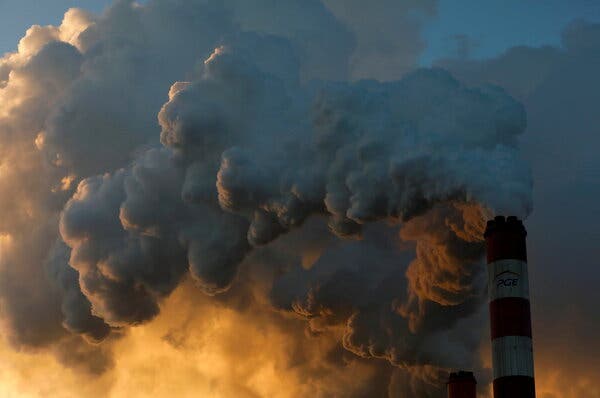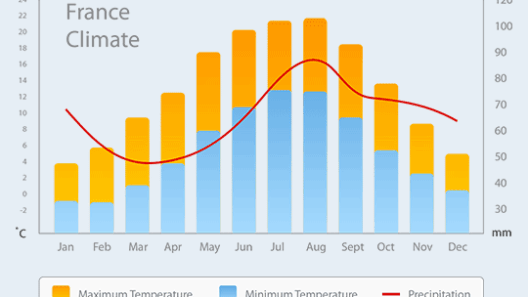At some point, everyone has wondered: What if we could push a reset button on our planet? What if, instead of dealing with the aftermath of an unprecedented environmental crisis, we could simply revert to a time before carbon emissions became an omnipresent element of our industrialized existence? However, this whimsical thought does little to address a pressing question: do carbon emissions genuinely precipitate climate change? The answer is an unequivocal yes, but the journey to understanding this causal relationship is as complex and intricate as the climate systems themselves.
First, we must establish what carbon emissions are. Carbon emissions primarily stem from the combustion of fossil fuels—coal, oil, and natural gas—which are interwoven into the very fabric of modern life. These fuels power our vehicles, heat our homes, and energize our industries. While they might serve our immediate needs, the byproduct of this combustion—carbon dioxide—is a greenhouse gas with a notorious reputation. This raises the challenge: how does the burning of these fuels translate into a global climate quandary?
The science behind carbon emissions and climate change is rooted in the greenhouse effect. To simplify, the Earth’s atmosphere is a dynamic blanket composed of gases that trap heat, a process essential for life as we know it. However, the incessant pumping of carbon dioxide and other greenhouse gases into the atmosphere thickens this blanket, creating an enhanced greenhouse effect. This elevated concentration of gases leads to a myriad of climatic disturbances, fundamentally altering weather patterns that humanity has depended upon for millennia.
One can pose a playful question: if carbon emissions were simply a side effect of progress, why are we now faced with catastrophic weather patterns, rising sea levels, and disrupted ecosystems? The consequences of unchecked emissions compel us to reevaluate our relationship with fossil fuels. The evidence is irrefutable: glaciers shrink, oceans acidify, and biodiversity diminishes—all symptomatic of a changing climate spurred on by rising levels of carbon in our atmosphere.
Consider the empirical data: scientists across the globe have been publishing findings that show an alarming correlation between carbon emissions and rising global temperatures. These findings do not exist in isolation; they represent a synthesis of decades of research. Each increment of carbon dioxide emitted contributes to an upward spike in global temperatures. Even a seemingly minuscule increase can have profound implications, as evidenced by the recent phenomena associated with extreme weather events. The severity of hurricanes, droughts, and heatwaves are increasingly documented as problems grounded not just in natural variability but significantly affected by anthropogenic climate change.
Furthermore, the challenge lies within the long lag time between carbon emissions and their effects on our climate. A child born today will not bear witness to the full extent of this burden; they will instead inherit a world where the impacts of our current negligence will continue to manifest into the foreseeable future. This intergenerational aspect complicates our environmental responsibilities, opening the floodgates for ethical debates about our role as stewards of the planet.
What’s particularly insidious about carbon emissions is their persistent nature. Once dispersed into the atmosphere, carbon dioxide can linger for hundreds of years. This longevity creates a feedback loop: as the climate warms, it triggers additional carbon emissions from natural reservoirs, like melting permafrost, further exacerbating the situation. This spiral presents an alarmingly treacherous path: for every action taken, the consequences materialize over an extended timeline, complicating decision-making processes for both individuals and policymakers alike.
This pressing challenge is underscored by the rise of deniers—those who cling to misinformation or selectively interpret scientific findings to cast doubt on the reality of climate change. Such dissent can impede necessary reforms and stall initiatives aimed at decreasing carbon footprints. Disengagement from factual science not only stymies progress but offers little in the way of solutions for the collective crises we face, ranging from intensified droughts to crippling floods.
The ramifications of carbon emissions on climate change extend far beyond localized weather phenomena, embedding themselves into the socioeconomic fabric of societies. Vulnerable communities, often with the least capacity to adapt, face the brunt of climate impacts. The challenge is not merely one of scientific understanding, but a moral one that positions wealthier nations, historically the largest emitters, in a position of accountability towards those disproportionately affected by climate disruptions.
As we traverse this complex landscape, innovative solutions emerge, compelling us to rethink our relationship with carbon emissions. Transitioning towards renewable energy sources—solar, wind, and hydro—becomes not an aspiration but a necessary tenet of survival. Embracing energy efficiency and cultivating a culture of conservation can catalyze a paradigm shift away from carbon dependency. Global efforts, such as the Paris Agreement, commendably illustrate our collective will to combat climate change. Yet, for true progress, the conversation must evolve from mere acknowledgment to committed action.
In conclusion, while whimsical thoughts of resetting the planet may temporarily captivate the imagination, the stark reality remains: carbon emissions do indeed cause climate change. It is imperative that we recognize this truth and act with the urgency it deserves. The burning truth lies not in what could have been, but rather in what must now be: a resolute commitment to sustainable practices, the championing of renewable resources, and a proactive approach in our fight against a warming planet. Our legacy hinges on our ability to confront this reality with resolve, ensuring a livable planet for generations to come.







